The Global Innovation Forum
In a significant departure from most traditional conferences, TGIF, Feb 16th-18th, 2018 was a highly interactive platform for ‘C-suit’ executives, directors, presidents and decision-makers from diverse industries (e. g. Life science, IT, semiconductor, nanotech, energy) and geographies which:
- Showcased individual and unified expertise in overcoming issues across the spectrum of discovery, development, commercialization and patient care in oncology.
- Highlighted recent cancer related advances and breakthroughs.
- Engaged decision makers from over 200 prestigious institutions and companies from India and abroad to create new opportunities for value creation.
A majority of the time at the forum was spent in active discussions through well-crafted panels and round table sessions that outlined specific multi-dimensional initiatives. Each initiative required active participation in the design and discussion phase at the forum; and future involvement in making products and services available for execution of the projects outlined. With the push for developing novel diagnostics and therapies, the need for translational medicine has increased exponentially. Genomic and proteomic technologies have generated critical information that are advancing the integration of biology and IT into translational medicine (BioIT), development of artificial intelligence based diagnostic and treatment models, among others. But, in order to develop clinically relevant therapeutic agents from translational research; access to the infrastructure, integration of national health data and collaboration among researchers, clinicians and pharmaceutical companies to conduct clinical trials are paramount. The discussion panels at the TGIF 2018 forum were designed to better understand the gaps and formulated a strategy that would invigorate cancer care in India. The discussions at the forum focused on the following:
- Role of government(s) in supporting translational oncology in India. The process involved in the integration of translational cancer research between non-government organizations and the government. An active discussion on how to coordinate efforts in the establishment of a consortia in India with an active involution from government(s), academia and industry.
- Designing clinical cancer research programs, role of informatics and participation on a global scale. Setting up global scale collaborative and cooperative clinical trials. Also assist in effectuating long-term collaborations that would serve countries with limited resources to further develop their potential for cancer research and treatment.
- Future of diagnostics and individualized therapy. The potential for integration of different “omics” in developing effective diagnostics and tailoring therapeutic approaches in cancer treatment. One such topic discussed in depth; would be the origin of Chimeric Antigen Receptor T-cell therapy and its potential in the future.
Video Gallery
Playlist

Dr Desaiah Durisala, PhD, FmrAdvisor, Strategy, Global Scientific Communications, Eli Lilly and com
7:32
Dr Edus Houston Warren, MD, PhD Director, Global Oncology, Fred Hutchinson Cancer Institute, Seat
3:23
Dr Pallu Reddana, PhD Dean in charge, School of Lifesciences, University of Hyderabad, Hyderabad,
7:39
Dr Purvish Parikh, MD Director, Precision Oncology and Research, Asian Institute of Oncology, Som
4:27
Dr Somasundaram Subramanian, MD Surgical Oncologist & Cancer Survivor, Founder & CEO, Eurasian Fe
7:38
Dr Praveen Arany, D D S , Ph D, Assistant Professor, Oral Biology & Biomedical Engineering, School
5:28Testimonals
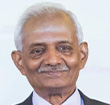


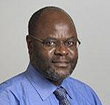
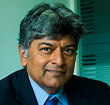

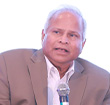
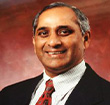
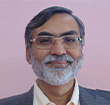
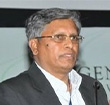
cure









